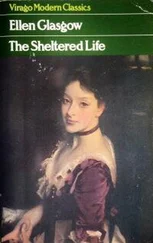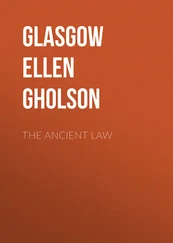Ellen Glasgow - The Builders
Здесь есть возможность читать онлайн «Ellen Glasgow - The Builders» — ознакомительный отрывок электронной книги совершенно бесплатно, а после прочтения отрывка купить полную версию. В некоторых случаях можно слушать аудио, скачать через торрент в формате fb2 и присутствует краткое содержание. Жанр: foreign_antique, foreign_prose, на английском языке. Описание произведения, (предисловие) а так же отзывы посетителей доступны на портале библиотеки ЛибКат.
- Название:The Builders
- Автор:
- Жанр:
- Год:неизвестен
- ISBN:нет данных
- Рейтинг книги:5 / 5. Голосов: 1
-
Избранное:Добавить в избранное
- Отзывы:
-
Ваша оценка:
- 100
- 1
- 2
- 3
- 4
- 5
The Builders: краткое содержание, описание и аннотация
Предлагаем к чтению аннотацию, описание, краткое содержание или предисловие (зависит от того, что написал сам автор книги «The Builders»). Если вы не нашли необходимую информацию о книге — напишите в комментариях, мы постараемся отыскать её.
The Builders — читать онлайн ознакомительный отрывок
Ниже представлен текст книги, разбитый по страницам. Система сохранения места последней прочитанной страницы, позволяет с удобством читать онлайн бесплатно книгу «The Builders», без необходимости каждый раз заново искать на чём Вы остановились. Поставьте закладку, и сможете в любой момент перейти на страницу, на которой закончили чтение.
Интервал:
Закладка:
And now as the elections drew nearer, these clearer thinkers stood apart and watched the grotesque political spectacle, with its unctuous promises of "peace and prosperity," in the midst of world tragedy. Though the struggle would be close, it was already evident that the sentiment of the country was drifting, not so much toward the policies of the administration, as away from the invectives of the opposite party. Since neither party stood for principle, nor had the courage to declare fearlessly for the maintenance of American rights, there was a measure of comfort in the reflection that, though the purposes of the Government were not wholly approved, they were at least partly known.
By the early autumn the campaign had passed through a fog of generalization and settled into a sham battle of personal and sectional issues, while in Europe the skies grew darker, and the events of the coming year gathered like vultures before the approaching storm.
And always, while America waited and watched, the forces that mould the destinies of men and of nations, were moving, profound, obscure, and impenetrable, beneath the surface of life.
Caroline's lamp flickered and went out, while her thoughts rushed back to the shelter of the house. The room was in darkness, but beyond the shutters, where the wind swept in gusts, the clouds had scattered, and a few stars were shining.
CHAPTER III
Briarlay
IN the train Caroline sat straight and still, with her eyes on the landscape, which unrolled out of the golden web of the distance. Now and then, when her gaze shifted, she could see the pale oval of her face glimmering unsteadily in the window-pane, like a light that is going out slowly. Even in the glass, where her eyes were mere pools of darkness, her mouth looked sad and stern, as if it had closed over some tragic and for ever unutterable secret. It was only when one saw her eyes – those eyes which under the arch of her brows and hair made one think of bluebirds flying – it was only when their colour and radiance lighted her features, that her face melted to tenderness.
While she sat there she thought of a hundred things, yet never once did she think of herself or her own interests as the centre around which her imagination revolved. If life had repressed and denied her, it had trained her mental processes into lucid and orderly habits. Unlike most women, she had learned to think impersonally, and to think in relations. Her spirit might beat its wings against the bars of the cage, but she knew that it would never again rise, with a dart of ecstasy, to test its freedom and its flight in the sky. She had had her day of joy. It was short, and it had left only sadness, yet because she had once had it, even for so brief a time, she might be disillusioned, but she could not feel wholly defrauded. Through that dead emotion she had reached, for an instant, the heart of life; she had throbbed with its rapture; she had felt, known, and suffered. And in confronting the illusions of life, she had found the realities. Because she had learned that thought, not emotion, is the only permanent basis of happiness, she had been able to found her house on a rock. It was worth a good deal of pain to discover that neither desire nor disappointment is among the eternal verities of experience.
To-day, as on many other days since she had passed through her training in the hospital, she was leaving home, after a vacation in which she had thought of herself scarcely a minute, for the kind of service in which she would not have time to think of herself at all. Work had been the solution of her problem, the immediate restorative; and she knew that it had helped her through the anguish, and – worse than anguish – through the bleakness of her tragedy, as nothing else could have done. "I will not sit down and think of myself," she had said over and over in those first bitter days, and in the years since then, while she was passionately rebuilding her universe, she had kept true to her resolve. She had been active always; she had never brooded among the romantic ruins of the past. If her inner life had grown indifferent, cold, and a little hard, her external sympathies had remained warm, clear, and glowing. The comfort she had denied herself, she had given abundantly to others; the strength she had not wasted in brooding, she had spent freely in a passion of service and pity. In her face there was the beauty and sweetness of a fervent, though disciplined, spirit.
"I am so sorry to leave them," she thought, with her eyes on the amber, crimson, and purple of the forest. "Mother is no longer young. She needs all the help I can give her, and the girls have so few pleasures. I wish there was something more I could do for them. I would work my fingers to the bone to give them a little happiness." And there floated before her, against the background of the forest, a still yet swiftly fleeting vision, of the fire-lit room, with the girls gathered, knitting, on the hearthrug, and her mother turning to look at her with the good and gentle expression that shone always in her face. Beyond the window the rain fell; the cedar brushed its boughs against the panes with a sound like that of ghostly fingers; on the roof above she heard the measured dropping of acorns. In the flickering light the old mahogany gleamed with a bronze and gold lustre, and the high white bed, under its fringed Marseilles coverlet, stood, like an embodiment of peace and sleep, in the corner. "It looks so happy, so sheltered," she thought, "and yet – " she was going to add, "and yet unhappiness came up the road, from a great distance, and found me there – " but she shattered the vague idea before it formed in her mind.
At the station Mrs. Colfax was waiting, and though Caroline had seen her only once, ten years ago, she recognized her by a bird-like, pecking manner she had never forgotten. As the ruin of a famous beauty the old lady was not without historic distinction. Though she was now shrunken and withered, and strung with quaint gold chains, which rattled with echoes of an earlier period, she still retained the gracious social art of the "sixties." Her eyes, hollowed under thin grey eyebrows, were black and piercing, and her small aristocratic features looked mashed, as if life had dealt them too hard a blow.
"My dear child, I should have known you anywhere, so, you see, I haven't yet lost my memory. It was years ago that I met you, wasn't it?"
A man in livery – she discovered afterwards that he was the Blackburn's footman – took her bag, and Caroline helped Mrs. Colfax out of the station and into the big limousine at the door. "It was so good of you to meet me," she said, for it was all she could think of, and to the last she had been haunted by the fear that Mr. Blackburn might decide to come for her.
"Good of me? Why, I wanted to come." As she watched Caroline's face, the old lady was thinking shrewdly, "She isn't so pretty as she used to be. I doubt if many men would think twice about her – but she has a lovely expression. I never saw a more spiritual face."
Once safely started she rambled on while the car shot into Franklin Street, and ran straight ahead in the direction of Monument Avenue.
"I always meant to meet you, and just as soon as your telegram came, I 'phoned Angelica about the car. She wanted to come down herself, but the doctor makes her lie down two hours every afternoon. Do you see that new office building at the corner? Your mother and I went to school on that spot before we boarded at Miss Braxton's in Petersburg. At that time this part of Franklin Street was very fashionable, but everything has moved west, and everybody who can afford it is building in the country. It isn't like your mother's day at all. New people have taken possession of the town, and anybody who has money can get into society now. We are coming to Monument Avenue. All the houses are brand new, but it is nothing to the country outside. The Blackburns' place just off the River Road is the finest house anywhere about Richmond, they tell me. He built it the year before his marriage, and I remember an artist, who came down to lecture before the Woman's Club, saying to me that Briarlay was like its owner – everything big in it was good and everything little in it was bad. I don't know much about such things, but he poked fun at the fireplaces – said they were Gothic or Italian – I can't remember which – and that the house, of course, is Colonial."
Читать дальшеИнтервал:
Закладка:
Похожие книги на «The Builders»
Представляем Вашему вниманию похожие книги на «The Builders» списком для выбора. Мы отобрали схожую по названию и смыслу литературу в надежде предоставить читателям больше вариантов отыскать новые, интересные, ещё непрочитанные произведения.
Обсуждение, отзывы о книге «The Builders» и просто собственные мнения читателей. Оставьте ваши комментарии, напишите, что Вы думаете о произведении, его смысле или главных героях. Укажите что конкретно понравилось, а что нет, и почему Вы так считаете.












